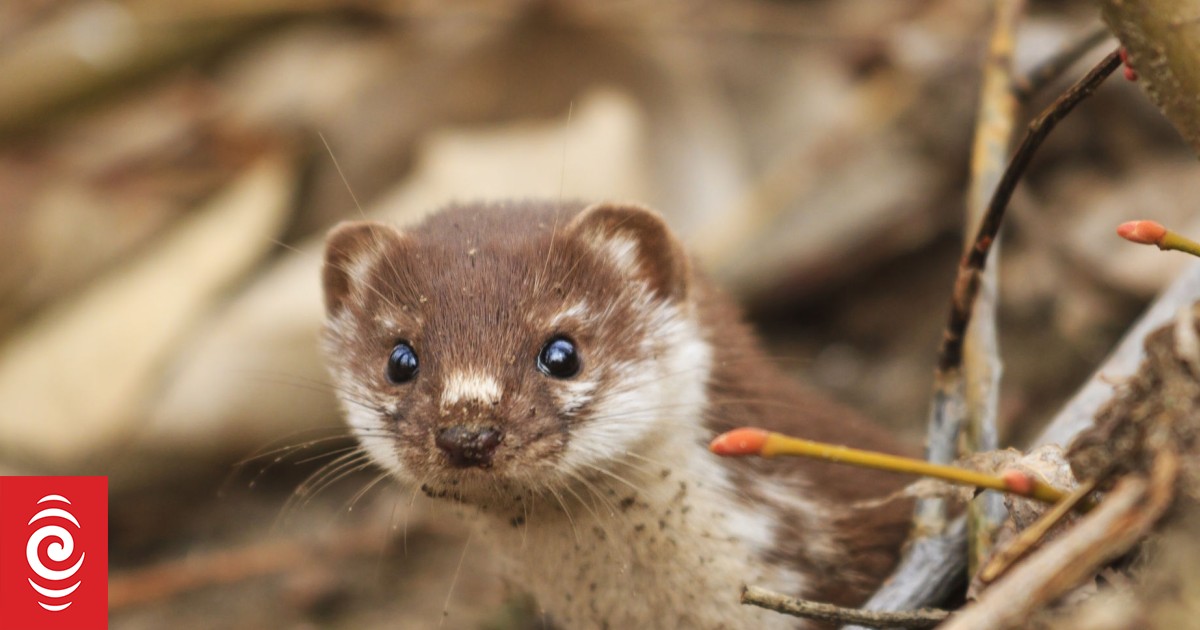A stoat has been caught after swimming its way into a protected sanctuary.
Photo: 123RF
A stoat is believed to have swum to a predator free sanctuary in the Marlborough Sounds.
Department of Conservation said a trail camera captured an image of a stoat in July and staff became aware of it the following month while reviewing footage.
Rangers then checked the trapping network on the island and found it had been caught and killed in a trap.
The Marlborough Sounds sanctuary island is home to rare and vulnerable bird species including kākāriki karaka/orange-fronted parakeet, mohua and tīeke/saddleback, as well as the nationally vulnerable giant snail Powelliphanta hochstetteri.
Picton biodiversity ranger Amy Brunsden said it showed the importance of the trapping network.
“This shows the value of having the trapping and surveillance network on the island, despite its predator-free status.
“It means we can respond quickly and catch any predators before they become established and start breeding,” she said.
“Critically endangered kākāriki karaka nest and roost in tree holes so they’re extremely vulnerable to predation and even one stoat could do lots of damage.
“They are only found in five sites in the wild and each is vital for the species’ recovery.”
It was thought the stoat had swum from nearby Arapaoa Island, which was 400 metres away at its closest point, and was home to small numbers of stoats, Brunsden said.
The mustelids have been known to swim up to five kilometres.
Extra trail cameras had been put out, with tracking tunnels to detect introduced predators to ensure no other stoats were on the island, Brunsden said.
A trained stoat detection dog would also be used to check the island.
Previous experience with island incursions showed it could be tough to remove stoats in low numbers, so it was vital to detect and respond quickly, she said.
The Oruawairua Island sanctuary was open to the public and Brunsden said while it was likely the stoat made it there under its own steam, it was important visitors followed quarantine procedures to make sure they did not accidentally introduce pests or predators.
“Thoroughly check your boat or kayak and equipment for pests like rodents, insects like ants, and unwanted seeds. Make sure it’s had a thorough clean, and keep any bags tightly closed ahead of your visit.”
Sign up for Ngā Pitopito Kōrero, a daily newsletter curated by our editors and delivered straight to your inbox every weekday.

